We have made the policy update an almost Brexit-free zone this week. Of course we are all looking forward to the excitement on Tuesday, described by the Chancellor Philip Hammond, on radio 4 as not being “high noon” – we’ve got lots more to get through before we get to high noon, apparently.
Brexit
Keeping it dry today, no politics here…if you are interested in all the amendments to the motion so far tabled for Tuesday, you can find descriptions of them on the BBC here. Parliament will publish the order of business nearer the time but as at Friday lunchtime the latest is here, which sets out the text of the amendments as tabled so far. It is very unlikely that all of these will be debated or voted on.
Dods have given us a very handy summary:
- Amendment (a) in the name of Leader of the Opposition Jeremy Corbyn: Calls for Parliament to have a vote on staying in the customs union, and a second referendum with the aim of preventing the UK from leaving without a deal.
- Amendment (b) in the name of Yvette Cooper: It provides for the European Union (Withdrawal) (No 3) Bill to be heard and passed on 5 February in a single day. The Bill, if passed, would mean that if the Prime Minister could not pass a withdrawal agreement by February 26 then the Commons would have an immediately vote on whether to request an extension of Article 50 from the EU which would end on 31 December 2019.
- Amendment (e) in the name of Andrew Murrison and Sir Graham Brady: states that the EU withdrawal agreement would be amended so that the backstop shall expire on 31 December 2021.
- Amendment (f) in the name of Hilary Benn: Calls on the Government to hold a series of indicative votes on the options setting out Exiting the European Union.
- Amendment (g) in the name of Dominic Grieve: The Government’s powers under Standing Order No.14 which allows them to set government business would not apply. A motion entitled: “That this House has considered the United Kingdom’s departure from, and future relationship with, the European Union” would then become the first item of business.
- Amendment (n) in the name of Andrew Murrison and Sir Graham Brady: amends the withdrawal agreement to include “and requires the Northern Ireland backstop to be replaced with alternative arrangements to avoid a hard border; supports leaving the European Union with a deal and would therefore support the Withdrawal Agreement subject to this change.”. *There is no suggestion of what the alternative arrangement would be.
Chief Political Commentator, John Rentoul has done a tally on likely outcomes from the amendment. Based on his calculations (very susceptible to change) Amendment B would pass by 320-317.[Ed: of course this one is a “long grass” amendment – it puts off the decision (as long as the EU agree) but who knows what Parliament would use the time for – the Bill to amend the leaving date and deliver the second part of the amendment is set out below]
And there are still some separate draft bills making their way through Parliamentary processes:
- Geraint Davies (this one has been around since June 2018) – will have its second reading on 8th Feb: A Bill to require the holding of a referendum to endorse the United Kingdom and Gibraltar exit package proposed by HM Government for withdrawal from the EU, or to decide to remain a member, following the completion of formal exit negotiations; and for connected purposes.
- And his second one (first presented in December 2018) also gets its second reading on 8th Feb: A Bill to require the Prime Minister to revoke the notification, under Article 50(2) of the Treaty on European Union, of the United Kingdom’s intention to withdraw from the European Union unless two conditions are met; to establish as the first condition for non-revocation that a withdrawal agreement has been approved by Parliament by 21 January 2019 or during an extension period agreed by that date under Article 50(3) of the Treaty on European Union; to establish as the second condition for non-revocation that a majority of participating voters have voted in favour of that agreement in a referendum in which the United Kingdom remaining as a member of the European Union was the other option; and for connected purposes.
- The Grieve bills have still not been published
- The Yvette Cooper one has – but no second reading date has been announced
And possibly connected, or possibly not, this is interesting (but not yet published) – Peter Bone “the Prime Minister (Temporary Replacement) Bill 2017-19” – this one was first tabled in Feb 2017 so probably not related. A Bill to make provision for the carrying out of the functions of the Prime Minister in the event that a Prime Minister, or a person temporarily carrying out the functions of the Prime Minister, is incapacitated; and for connected purposes.
And that is enough for now…
TEF Review
The independent review of the TEF kicked off this week with a call to HE providers to share their views on the TEF. The review is being chaired by Dame Shirley Pearce and will contemplate the adequacy of the metrics on which judgements are based, the rating categories (Gold, Silver, Bronze) and the impact these have on providers, and whether TEF is fair, worth it, and in the public interest. The review will conclude and report in summer 2019.
- The Minister said:“As Universities Minister I want you, the experts, to take part in Dame Shirley’s call for views and to give your thoughts so the TEF can work as well as it possibly can. It is important that we maximise the potential of this system and can only do that by getting invaluable insights from the sector.”
BU is compiling a response – please let us know if you want to input into this.
To coincide with the launch of the TEF review the DfE published their evaluation research into the TEF’s impact at year 2 (2016-17). They state it has driven providers to make improvements with positive changes in teaching quality and a focus on student employability. It also considers how widely prospective students used the TEF to determine their choice of institution.
- A large majority considered that the TEF was either having a ‘positive’ or ‘neutral’ impact on their institutions. A small minority considered that the TEF had impacted their provider or the sector in a negative way.
- Respondents reported that the TEF had contributed to an increased emphasis on student outcomes in the last two years (37%) and 29% noted that the TEF had contributed to an increased emphasis on teaching quality and the learning environment (rising to 45% among academic staff responding).
- A slightly lower proportion reported that the TEF had contributed to a change in course content (22%), or enhanced interventions for improving student retention (21%).
- With the exception of teaching quality/learning environment, HE providers which received a Bronze TEF award 2017 (Year 2) were more likely to report that the TEF had contributed to change over the last two years: 71% reported an increased emphasis on student outcomes, 38% noted change in course content, while 51% reported interventions for improving student retention.
- They report a considerable amount of change in student employability over the last two years, attributing some of this change to the TEF.
- The most common impact attributed (at least in part) to the TEF was an increase in student exposure to employability opportunities (21%).
- A further 17% reported that communications with students about their careers had started sooner (rising to 37% among academic staff responding)
- 17% reported developments in the careers services as a result of the TEF. Only 11% reported that the TEF had enhanced employer partnerships.
- 28% of respondents reported an increased demand on staff to support students, at least in part as a result of the TEF (rising to 44% among academic staff responding)
- A higher proportion of respondents noted that the TEF had contributed to a decrease in teaching morale (15%) than an increase (10%)
- Recruitment
- Among Gold providers, 43% said that the TEF had, at least in part, impacted on an improved institutional reputation among potential applicants.
- Bronze award providers were more likely to attribute the TEF in a decline in reputation (25%).
- Page 14 considers the level of influence the TEF rating had on applications and choice of a HE provider
- Respondents reported that at least partly as a result of the TEF:
- new initiatives were being developed to improve teaching standards (24%)
- there was an increase in teaching qualifications or training schemes (24%)
- staff were provided more support to deliver positive student experiences (23%)
- there was an increase in sharing best practice across departments (21%, rising to 37% among academic staff responding)
- TEF brought a focus to some areas:
- increased investment in the monitoring of TEF-related metrics: 61% of TEF Contacts reported that the TEF – at least in part – contributed to increased monitoring of metrics such as NSS scores, continuation rates and employment data)
- This rose to 79% among Bronze providers.
- The qualitative interviews revealed a particular emphasis for some HE providers on monitoring retention rates, in part due to the financial implications of high retention rates.
This chart on page 34 shows a mapping of the perceptions of the impact that TEF has had: As Figure 3.2 shows, there are some clear patterns by broad category:
- Student Experience – TEF Contacts reported a high amount of change in the last two years for all items, relative to other categories, and a moderate (average) amount of this was considered to be as a result of the TEF.
- Student Employability – For four items, this followed a similar pattern to student experience, although generally both the amount of change and extent of TEF influence reported was slightly lower. Two items showed low change and low TEF impact.
- Teaching Staff – With one exception, there had been low change in the last two years, and TEF influence was also primarily low.
- Teaching Practices – Similar to student employability, with a higher level of change reported overall, and mostly a low amount of this was attributed to the TEF.
- Prospective Students – All four items showed low or average levels of change in the last two years; with one exception TEF influence was also low.
- Wider impacts – The extent of change in this category varied from very high to low, and in all instances where change had occurred, a high amount was attributed to the TEF, relative to other categories
Conclusions can be read at pages 120-123. One of the final points is that awareness and understanding of the TEF within the applicant population needs to increase for the TEF to fulfil its original purpose to better inform students’ choices about what and where to study.
The call for views is only the first step: “In addition to the call for views I will be holding a programme of listening sessions and commissioning specific assessments of specialist questions. These will include an independent analysis of the statistical base of the TEF process and an assessment of its international impact. See more on the workstreams here.“
Unconditional Offers
The Student Room ran a survey with TSR research to obtain prospective students’ views on unconditional offers.
- 46% agreed the Government should regulate unconditional offers (33% didn’t, 22% unsure)
- However, 70% would be happy to receive an unconditional offer and 58% felt they would feel positive about a university that gave them an unconditional offer believing it is offered as recognition of achievement (especially when from a high rank university or competitive course)
- In keeping with the above theme of unconditional offer as recognition the survey found ‘for the most part’ the prospective students felt universities should be selective in who receives an unconditional offers
- The prospective students felt these were genuine reasons to receive an unconditional offer:
- Already have the grades (62% agreed)
- An impressive personal statement (40%)
- Successful interview (31%)
- Very high predicted grades (31%)
- Student is from a disadvantaged background (30%)
However, 10% felt that unconditional offers should never be made.
- When asked if universities make unconditional offers to fill places rather than because of student aptitude or characteristics the opinion of unconditional offers became negative:
- 59% would perceive the university negatively if they believed they weren’t discerning and made too many unconditional offers (6% weren’t bothered about this)
- Conditional unconditional offers (when the university makes a conditional offer unconditional after the application selects them as their firm choice) received mixed responses with 47% perceiving this negatively and 20% who approved of it.
However, the prospective students commented that the practice is manipulative. And while half said a conditional unconditional would not make them change their decision 27% said it would sway their choice to the unconditional university over the one they really wanted to attend. This was one of Sam Gyimah’s key criticisms on unconditional offers whilst he was HE Minister.
- 43% recognised that the unconditional offer was a boon to mental health – reducing the pressure of exams and allowing them to do better. Although others felt it would negatively impact motivation to perform well (39%) and that such students wouldn’t be sufficiently prepared for university study and exams.
- Other students (without unconditional offers) were resentful and didn’t want to study alongside those with an unconditional offer that may not have worked as hard or achieved the required grades. One quote implied only the top universities should be allowed to make unconditional offers: “Ultimately I just think unconditional offers shouldn’t be handed out on a plate, and more regulation of less prestigious unis handing them out should be enforced.”
All in all the students back up Government concerns that unconditional offers sway capable students away from more prestigious universities, that they undermine the sector’s reputation, and that is it more about bums on seats within the crowded HE recruitment market. However, there is enough balancing student opinion to show the other side of the coin – young people value unconditional offers when they perceive they are a reward for aptitude, a reasoned boon to social mobility, and a balm to improve mental health. A large proportion were in favour of Government regulation, which the HE sector is keen to avoid.
And the OfS have responded with a press release, a briefing and interviews.
Some extracts from the briefing are here:
The growth of unconditional offers appears to be a consequence of increasing competition between universities. The OfS has a legal duty to have regard to the need to encourage competition where it is in the interests of students and employers. The question is whether the sorts of unconditional offer practices arising from this competition are in the interests of students
…The OfS is concerned about the rapid rise in unconditional offers, particularly those that require students to commit to a particular course. We will take action where they are not in students’ interests.
- While some are seeking to justify unconditional offers as a tool to support fair access for disadvantaged students, contextual offer-making is a more effective way of achieving this.
- We will make clear where ‘pressure selling’ practices are at risk of breaching consumer protection law, and empower students to challenge this as well as taking regulatory action if appropriate.
- We will bring together a range of education, employer and other organisations to explore whether the admissions system serves the interests of students. We will work with the Department for Education, students, UCAS and others on a consultation on principles for how the admissions system can best achieve this goal.
….Are unconditional offers a good or bad thing? This is probably the wrong question. Most commentators agree that, used appropriately, unconditional offers have a legitimate and useful place in the university admissions system. The right question is probably more complex: what does an ‘appropriate’ unconditional offer look like?
Risk of reduced attainment
- The most recent UCAS report, and our own analysis, support this concern. UCAS estimates that the proportion of applicants placed in higher education through unconditional offers who miss their predicted grades by two or more grades is around five percentage points higher than would be expected compared with those holding a conditional offer. UCAS’s modelling controls for different attainment at GCSE, background characteristics of the student and the course where they hold their firm offer to ensure that this estimate is not influenced by the group of applicants who hold unconditional offers. This proportion has remained fairly stable throughout the increase in unconditional offer-making. This means that as unconditional offers increase, more young people are attaining slightly weaker A-level results than expected each year.
- ….The rapid increase in unconditional offers means that it’s too early to assess with any certainty their effect on continuation rates, student satisfaction and degree attainment. The limited evidence we have on non-continuation rates is set out in Figure 3, which shows non-continuation rates by entry qualifications. Because of the timescale we have only been able to look at entrants in 2015-16, when the numbers of unconditional offers were much lower than in 2018, and the differences are not statistically significant. We will continue our analysis as more data becomes available.
Impact on disadvantaged students
- There are particular concerns about the effect of unconditional offers on students from disadvantaged groups. Critics highlight the particular vulnerability of applicants who are the first in their family to attend university, and of those who lack parental support. These applicants may be more likely to accept an unconditional offer with limited information about their options and the potential drawbacks.UCAS analysis shows that more unconditional offers are being made to applicants from the areas with the lowest rates of participation in higher education: these applicants are more likely to receive an unconditional offer than applicants from areas with higher participation. This is illustrated in Figure 4.
- …Our own analysis demonstrates that some of this difference may be attributable to types of university rather than to student characteristics. In other words, universities and colleges may not, in general, be directing their unconditional offers towards disadvantaged students; rather, those that take a greater proportion of disadvantaged students tend to use more unconditional offers. This is an important distinction. It suggests that unconditional offer-making to disadvantaged students may be driven more by the circumstances of universities and colleges than the needs of the students. This contrasts with the practice of contextual offer-making, which takes into account the circumstances in which academic results are achieved.
Constraining choice?
- A concern is that applicants may choose an unconditional offer because they see it as a safer option than a conditional offer. In particular, students accepting a conditional unconditional offer are depriving themselves of the chance to
- consider other universities and colleges. This can result in students making sub-optimal choices, without information on alternative options which may be more suitable for their career plans or may better reflect their abilities and talents. In other words, they may not necessarily be opting for the course and university or college that would be best for them overall.
- Since they can have the effect of reducing attainment, unconditional offers may also limit students’ ability to choose a different higher education course, whether by changing their mind before starting, ‘trading up’ during adjustment or clearing, or transferring courses at a later stage. A connected concern centres on a perceived lack of transparency about how unconditional offers work. There is limited understanding of the criteria universities apply in selecting applicants to receive unconditional offers.
The OfS is taking action in relation to unconditional offers on a number of fronts:
- We will continue to monitor and assess the way unconditional offers are being used across the sector.
- We will ensure that provider-level data on unconditional offers is published on a regular basis, starting in 2019, including their impact at all stages of the student lifecycle where this can be monitored.
- We will identify any cases where the evidence suggests that students with unconditional (or very low) offers are particularly at risk of poor outcomes, or not being properly supported. We will challenge the universities or colleges concerned, and intervene where necessary.
- We will make clear our expectations that the governing bodies of universities and colleges are fully sighted on their institution’s admissions policy and its implications for the interests of individual students.
- We will make clear where ‘pressure selling’ practices are at risk of breaching consumer law, and empower students to challenge this as well as taking regulatory action ourselves if appropriate.
- We will work with UCAS and other bodies providing information, advice and guidance to improve students’ ability to make informed choices about unconditional offers.
The OFS research paper is here:
- We are currently unable to include conditional unconditional offers (type B) which have not been recorded as unconditional (typically because the applicant has not made the offer their firm choice). The UCAS report includes an assessment of the conditional unconditional offers (type B) including those that are not recorded as unconditional. It suggests that the proportion of offers being made that have an unconditional component could be as much as 70 per cent higher than the unconditional offers reported here. Where possible we have shown the UCAS estimates of offers that contain an unconditional component alongside our estimates, for context.
Research
On Thursday the Chancellor, Phillip Hammond, announced £100 million investment for research and technology to future-proof the UK economy for the fourth industrial revolution and to boost UK innovation. The funding has been earmarked for the creation of 1,000 new PhD places across the UK for the next generation of Artificial Intelligence; to fund research into life-saving technology to be used in NHS hospitals; to address pollution hotspots within cities and develop an early warning system; and to improve voice-recognition software for business and consumers. Despite the rhetoric it’s not completely new money – it is part of the £7 billion that was promised for science and innovation in announcements since 2016. The Chancellor said:
- “Britain is a great place to do business. And we are determined, as we leave the EU, to make sure it remains that way. We are leading the way in the tech revolution. The UK digital sector is now worth over £130 billion with jobs growing at twice the rate of those in the wider economy .I want to ensure we remain the standard bearer, so we must invest in our new economy so that it can adapt and remain competitive. We are backing British innovation to help create growth, more jobs and higher living standards.”
Accelerated Degrees
Last week we informed you that the regulations aiming to change the HE funding regime to facilitate accelerated degrees were presented in Parliament amid concerns from Labour. Labour feel that working throughout the summer break rules out lower income students who rely on holiday jobs to fund their study and living costs. This week the Commons voted and have passed the regulations authorising the 20% increase on yearly fees for accelerated students. While the vote wasn’t close there was substantial opposition with all Labour MPs voting against the increase. Other criticisms levied at the accelerated degree was the loss of the university experience and less time for students to settle into university life.
Chris Skidmore, Universities Minister, said the legislation was: “One of the great modern-day milestones for students and breaks the mould of a one-size-fits all system for people wanting to study in higher education.”
Next hurdle for the regulations is the House of Lords vote which will take place next Tuesday 29 January.
International students
Encouraging International Students (link)
Q – Jo Stevens: To ask the Secretary of State for Education, what steps his Department has taken to ensure that the number of international students choosing to study in the UK grows over the next 10 years.
A – Chris Skidmore:
- The government fully recognises the important economic and cultural contribution that EU and international students make to the UK’s higher education sector. The government welcomes international students and there continues to be no limit on the number who can come here to study, and there are no plans to limit any institution’s ability to recruit them.
- The UK remains a highly attractive destination for non-EU students with their numbers remaining at record highs, with over 170,000 non-EU entrants to UK higher education institutions for the seventh year running. The UK is a world-leading destination for study, with four universities in the world’s top 10 and 16 in the top 100 – second only to the USA. The government actively promotes study in the UK through the GREAT Campaign and to over 100 countries through the British Council.
- In the Immigration White Paper, published on 19 December 2018, the government proposed to increase the post-study leave period for international students following completion of studies to 12 months for those completing a PhD, and to six months for all full-time postgraduate students and undergraduate students at institutions with degree awarding powers. Going beyond the recommendations set out by the Migration Advisory Committee, these proposals will benefit tens of thousands of international students.
Q – Catherine West: To ask the Secretary of State for the Home Department, whether there will be an independent review of credibility interviews within the student immigration system to ensure the system is (a) fit for purpose, (b) cost effective relative to current risk and (c) does not hinder universities’ ability to recruit a diverse range of students.
A – Caroline Nokes:
- An internal review of point of application credibility interviews for international students was conducted in 2018 to ensure that interviews are adding value to the case consideration process and not unnecessarily inconveniencing customers.
- Up to date risk information was factored in to this review. Regular engagement with universities and other educational institutions ensures that feedback is collected in relation to the application process.
Q – Wes Streeting: To ask the Secretary of State for Education, whether EU students starting courses in England in the 2019-20 academic year will be eligible for home fee status in the event of the UK leaving the EU without a deal.
A: Chris Skidmore:
- The department is aware that students, staff and providers are concerned about what EU Exit means for study and collaboration opportunities. To help give certainty, in July 2018, the department announced guarantees on student finance for EU nationals.
- These guarantees are not altered if the UK leaves the EU without a deal. EU nationals (and their family members) who start a course in England in the 2019/20 academic year or before, will continue to be eligible for ‘home fee’ status and student finance support from Student Finance England for the duration of their course, provided they meet the residency requirement.
The House of Commons library also released an international and EU student briefing paper. You can download the pdf paper from the link at the very bottom of this page.
Q – Jo Stevens: To ask the Secretary of State for the Home Department, whether he plans to review the option of introducing a post-study work visa allowing up to two years of work experience for international students in the UK.
A – Caroline Nokes:
- The independent Migration Advisory Committee’s report on international students, published in September 2018, recommended against the introduction of a separate post-study work visa. The report also made several positive recommendations with regard to the current post-study work offer. (Link.)
- … As set out in the Immigration White Paper, published last month, under the new student route all students studying at a Masters’ level, or at Bachelors’ level at an institution with degree awarding powers, will be eligible for a six-month post study leave period. Doctoral students will be eligible for a 12-month post study leave period. This will benefit tens of thousands of international students by providing them with more time to gain valuable experience or find employment in the UK in accordance with the skilled work migration routes.
Post-18 review
The rumours and leaks surrounding Augar’s Review of Post-18 education and funding have been a weekly affair over the last month with mass speculation over how degree tuition fees may change in the future. This week the BBC ran an article suggesting that Justine Greening planned to axe tuition fees in favour of graduate tax contributions before she was reshuffled out of office. The article says:
- She [Justine] says she had been working on a radically different system which would have removed fees – but instead the prime minister launched a review of student finance, chaired by financier Philip Augar. Ms Greening is scathing about the review, which is expected to report back next month… She says its public remit is confused – without any “clear objectives of the problem it was trying to fix”. And she says its private purpose was to buy time and only “tweak” a few of the most politically toxic aspects of the current system.
Other news
Extremism:
On Monday the Henry Jackson Society published Extreme Speakers and Events: In the 2017-18 Academic Year. It claims that in 2017/18 there were 435 student focussed events which had extremist content and creates a league table of the institutions most regularly hosting events which contain such content. The Society garnered media attention in claiming such universities were failing in their Prevent duties. They also criticised the Office for Students (OfS) monitoring and questioned the OfS figure that 97% of universities are compliant with Prevent. Wonkhe highlighted that the report doesn’t consider the risk assessment and mitigation that may have been put in place by the host institutions. Responding to the report Queen Mary University replied that their speakers were subject to “stringent checks” and Birmingham University said “none of the speakers appear on any government list of proscribed organisations or individuals”. Nevertheless, The Times report that Robert Halfon, Chair of the Commons Education select committee, said: “This is incredibly distressing. We seem to be going backwards. There needs to be an urgent inquiry.”
By Wednesday the Home Office Minister of State for Security, Ben Wallace, announced a public independent review of the Prevent counter-radicalisation programme stating it was in response to an amendment by peers seeking such a move during scrutiny of the government’s counter-terrorism and border security bill. He continued:
“This review should expect those critics of Prevent, who often use distortions and spin, to produce solid evidence of their allegations.” On the timing he said: “The review of part 5 of the Counter-Terrorism and Security Act 2015, which provides the legislative foundation for the Prevent programme, is in any event due to take place early in 2020, just 12 months away. Given that, I have decided that the time is now right to initiate a review of Prevent. Communities across the country are behind the policy and are contributing to it because, like us, they want to protect their young people from being groomed and exploited by extremists.”
The Financial Times also reports Parliament’s joint committee on human rights, comprising both MPs and peers, has also called for the scheme to be scrutinised.
Civic Engagement: Narratives on HE: slumming it on civic engagement is a new blog on Wonkhe covering the social good that students do within a community.
International Education Strategy: Education Minister, Damian Hinds, announced the intention to develop a cross-Government international education strategy stressing that education is “a big part of our diplomacy”. The strategy will address and encourage incoming international students to the HE sector as well as supporting the expansion of UK universities abroad, Damian said:
Inbound international students is a really important part of [the strategy], both for the earnings reason – it’s an important part of business – but also, just as important, because of the role it plays in our place in the world and because it makes sure we have diverse, vibrant student communities where everyone is learning from each other.”
UUK International Director, Vivienne Stern, said:
“We’re delighted to hear the Secretary of State for Education speaking publicly about the new governmental international education strategy and we are looking forward to its launch. The sector has long called for an ambitious strategy, backed up by meaningful policy, to encourage international students to choose UK universities. International students are vital to our universities.”
The speech was also covered by The Financial Times.
Disadvantaged pupils:
The DfE have released data showing rising standards in secondary schools with disadvantaged pupils in multi-academy trusts making more progress than the equivalent national average. School Standards Minister, Nick Gibb, said:
- Making sure that all pupils, regardless of their background, are able to fulfil their potential is one of this Government’s key priorities and these results show that more pupils across the country are doing just that.It’s been clear for some time that standards are rising in our schools and today’s data underlines the role academies and free schools are playing in that improvement, with progress above the national average and impressive outcomes for disadvantaged pupils.
A level and other 16-18 results have also been published highlighting lower attainment for disadvantaged students compared to non-disadvantaged students across all qualification types.
Meanwhile the Public Account Committee have published a report on school academies accounts and performance. It concludes that a number of high profile academy failures have been costly to the taxpayer and damaging to children’s education, and recommends that the governance and oversight of academy trusts needs to be more rigorous. Furthermore that Academy trusts do not make enough information available to help parents and local communities understand what is happening in individual academy schools. And when things go wrong it is not clear who parents can turn to, to escalate concerns about the running of academy schools and academy trusts.
Contact Sarah if you would like a more in depth summary of any of the above three reports.
EDM: An interesting cross-section of MPs have signed the following Early Day Motion within Parliament which pushes back against the recent ‘let them fall’ mindset to Universities in financial difficulty:
- That this House recognises the crucial role of our higher education sector in meeting the nation’s skills needs and supporting local economies; notes with concern the recent comments by Sir Michael Barber, chair of the Office for Students, which suggest that the new regulator will not support universities experiencing financial difficulties; further notes that allowing a higher education institution to fail would cause significant harm to its students, graduates and local area; awaits with interest the findings of Philip Augar’s review of post-18 education and funding which represents an opportunity to overhaul the current system predicated on student debt; and calls on the Government to introduce a fair and sustainable funding system which protects both student interests, institutional funding, and which recognises higher education is not a private commodity but an essential public good.
Subscribe!
To subscribe to the weekly policy update simply email policy@bournemouth.ac.uk
JANE FORSTER | SARAH CARTER
Policy Advisor Policy & Public Affairs Officer
Follow: @PolicyBU on Twitter | policy@bournemouth.ac.uk

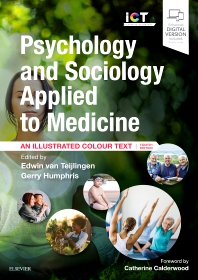

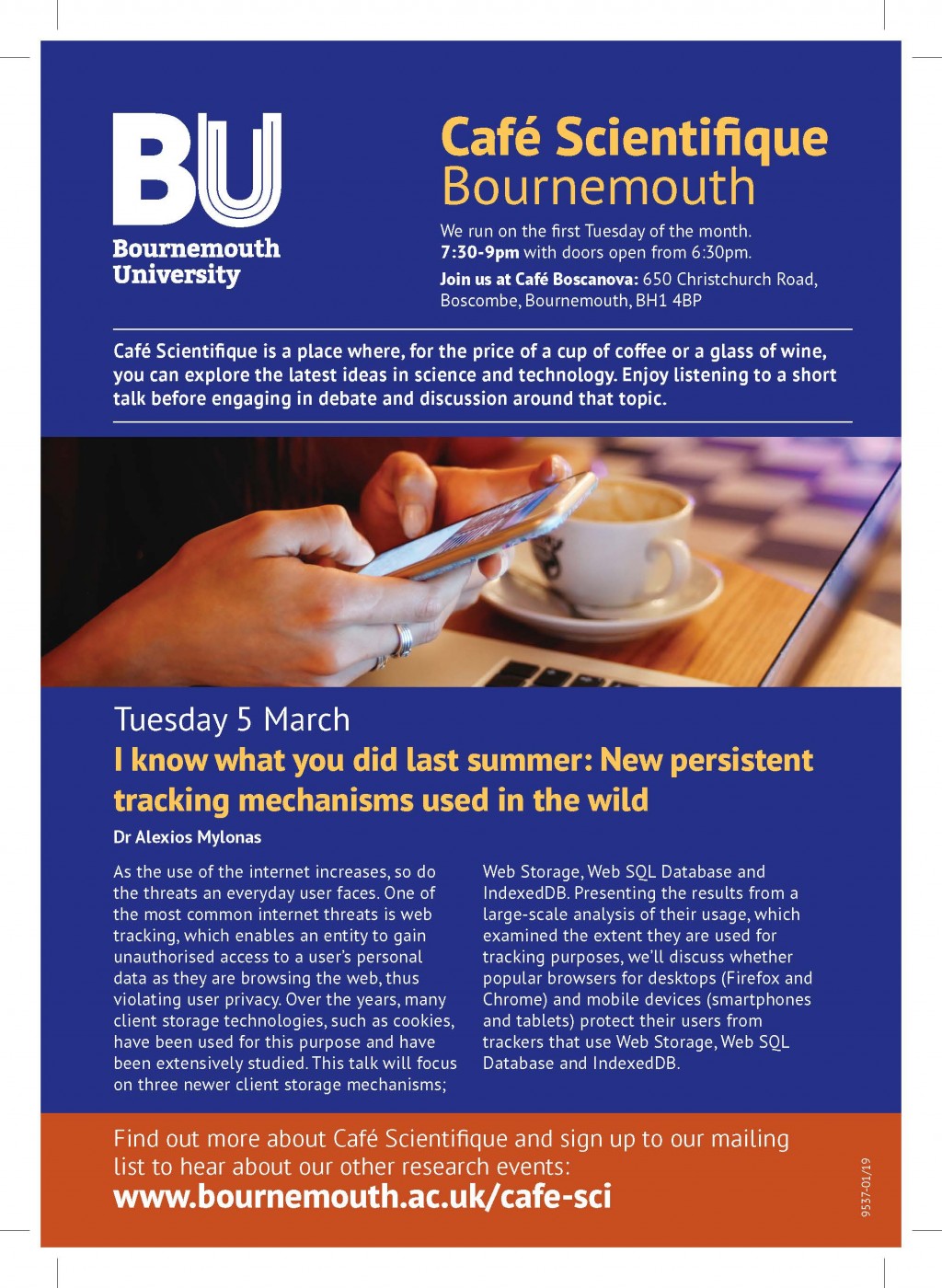
 The deadline for the research photography competition is this Wednesday (January 31st.)
The deadline for the research photography competition is this Wednesday (January 31st.)

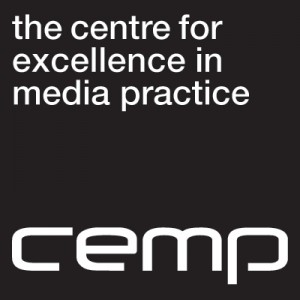

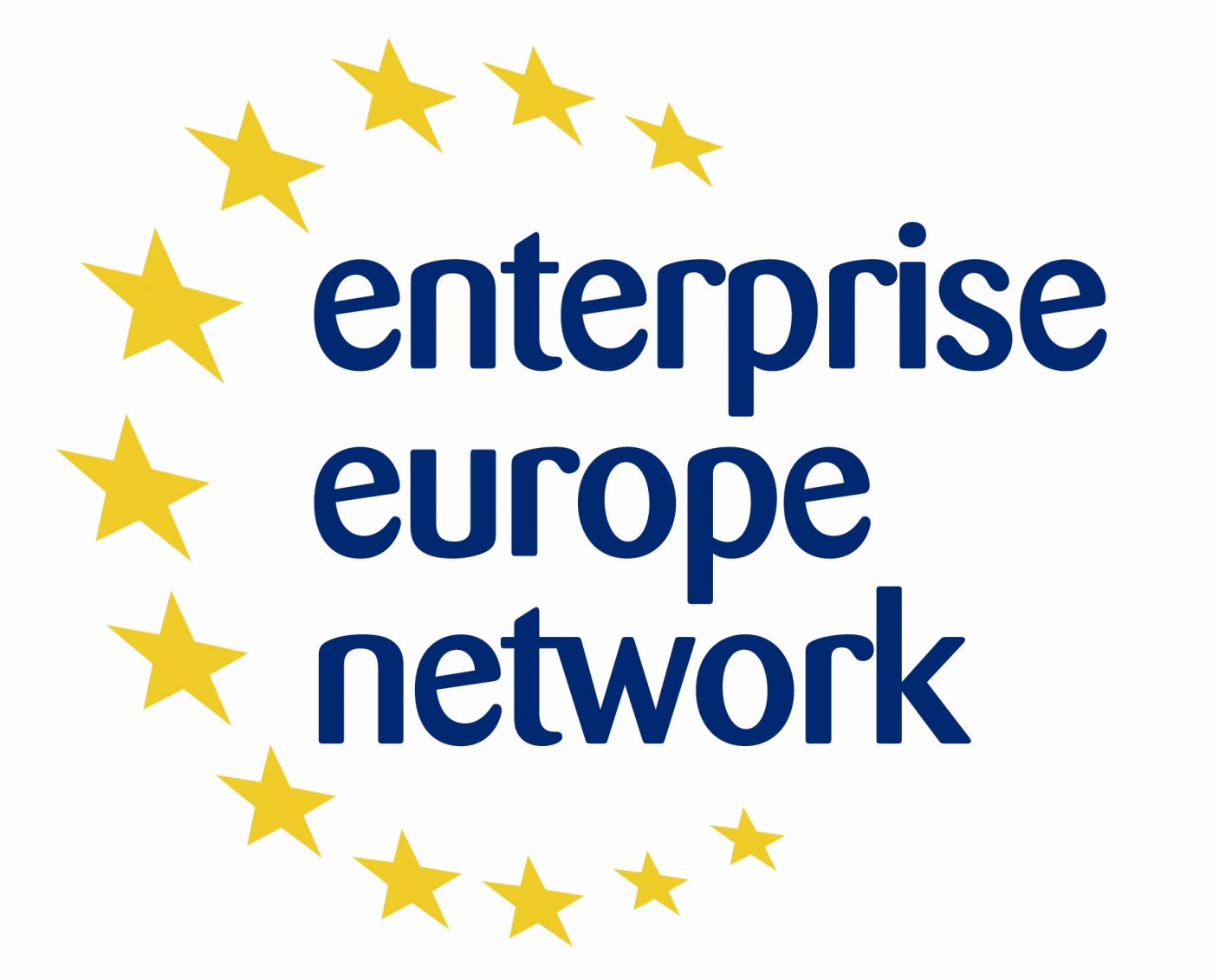

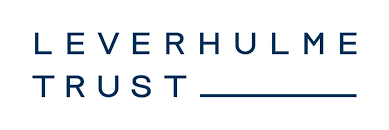 Bournemouth University invites expressions of interest from early and mid-career researchers at Bournemouth University, looking to build a research team to tackle a distinctive research problem.
Bournemouth University invites expressions of interest from early and mid-career researchers at Bournemouth University, looking to build a research team to tackle a distinctive research problem.
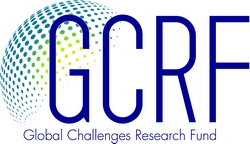











 From Sustainable Research to Sustainable Research Lives: Reflections from the SPROUT Network Event
From Sustainable Research to Sustainable Research Lives: Reflections from the SPROUT Network Event REF Code of Practice consultation is open!
REF Code of Practice consultation is open! BU Leads AI-Driven Work Package in EU Horizon SUSHEAS Project
BU Leads AI-Driven Work Package in EU Horizon SUSHEAS Project Evidence Synthesis Centre open at Kathmandu University
Evidence Synthesis Centre open at Kathmandu University ECR Funding Open Call: Research Culture & Community Grant – Apply now
ECR Funding Open Call: Research Culture & Community Grant – Apply now ECR Funding Open Call: Research Culture & Community Grant – Application Deadline Friday 12 December
ECR Funding Open Call: Research Culture & Community Grant – Application Deadline Friday 12 December MSCA Postdoctoral Fellowships 2025 Call
MSCA Postdoctoral Fellowships 2025 Call ERC Advanced Grant 2025 Webinar
ERC Advanced Grant 2025 Webinar Update on UKRO services
Update on UKRO services European research project exploring use of ‘virtual twins’ to better manage metabolic associated fatty liver disease
European research project exploring use of ‘virtual twins’ to better manage metabolic associated fatty liver disease